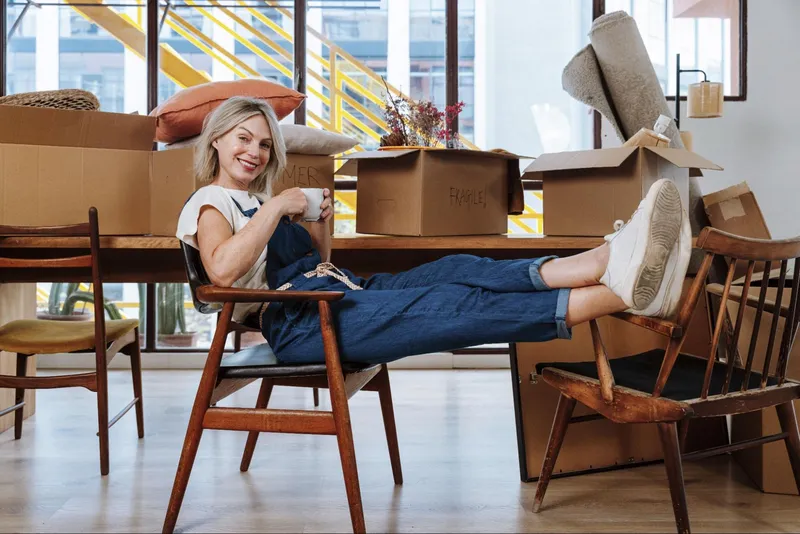5 Common Expenses to Avoid Right After Moving to Your New Place
Moving into a new home is exciting, but these first-week spending traps can wreck your budget. Here's what to skip and why it matters.
 By Alex Moreno
By Alex Moreno

Smart budget moves for your first weeks in a new home
Moving into a new place is one of those life moments that feels like a fresh start. You've got the keys in your hand, endless possibilities for how to make it your own, and maybe even a mental Pinterest board ready to bring to life. But here's the thing about those first few weeks: they're full of excitement and also full of spending traps.
It's easy to get caught up in the urge to fill every empty space, sign up for everything in sight, and treat yourself a little too much "because you just moved." The reality is, overspending right after a move can leave you stressed and strapped for cash before you even get to enjoy your new space. Avoiding a few common expenses can keep your budget intact and your stress levels low.

The First Week Spending Spiral
You just moved in. You're riding the high of new keys, fresh paint smells, and a place that's officially yours. But this is also the danger zone. That "new home" energy can send you straight into a spending spiral. That very first week is when people often make their biggest financial mistakes, buying everything at once just to make the place feel "done." But trust us when we tell you that your home does not need to be fully furnished by next Friday.
Living in the space for a few weeks gives you time to figure out what you actually need. You might realize the dining table you thought was essential isn't even practical for your layout. Or that the perfect rug you had in your cart online doesn't match the vibe of your living room once you see it in real life.
The Takeout Temptation
Unpacking is exhausting. Grocery shopping after a move feels like running a marathon you didn't train for. So, you open a food delivery app. One night turns into three, and suddenly you've spent more on takeout than you did on your utility deposit. It's an easy trap to fall into, and it hits both your wallet and your energy.
A better move is stocking up on a few quick, no-cook meals from the start. Think pre-made wraps, smoothie packs, and grab-and-go snacks. Even having just a couple of easy options in the fridge can save you from the nightly "What should we order?" debate. Your bank account and your digestion will thank you.
The Upgrade Urge
There's something about a new space that makes you want to upgrade everything. A new couch to match the paint color. Sleek appliances because the current ones aren't Instagram-worthy. The problem is, these upgrades are often expensive and rarely urgent.
Many people find that after a little time, the things they thought needed replacing just need a deep clean or a fresh coat of paint. Before you start swiping your card, check out thrift shops, Facebook Marketplace, or local swap groups. You might score exactly what you want for a fraction of the price, and you'll avoid filling your place with rushed purchases you don't truly love.

Subscription Overload
A new neighborhood can feel like an invitation to sign up for everything. The gym down the street, the coworking space with the good coffee, the yoga studio with unlimited classes, and maybe a couple of new streaming services for your cozy nights in. Before you know it, you're committed to hundreds in monthly fees for things you might not even use.
Instead of doing that, give yourself a trial period. Explore your neighborhood, try a drop-in class, see if you actually watch that new streaming service, and then decide. The things you'll stick with will be the ones worth the investment.
The "Everything Must Match" Trap
It's natural to want your home to look picture-perfect right away, especially if you've been saving inspo boards for months. But chasing that perfectly matched, catalog-ready look is one of the fastest ways to drain your moving budget. Styles change, your taste will evolve, and honestly, a little mix-and-match makes a space feel more personal and lived-in.
Give yourself permission to let your home come together slowly. The pieces you find over time will have more meaning, and you'll avoid the regret of buying a whole set of furniture you want to replace a year later.
What to Remember Before You Start Spending
Don't let moving hype wreck your wallet. You've got time. Time to figure out the flow of the place. Time to see what you actually need. Time to let it all come together without blowing your budget in week one. Skip the pressure to perfect everything. Keep your spending chill, your fridge stocked, and your vibe intact. That's the move.
Looking for more money-saving tips? Check out our other money articles for practical advice that actually works.